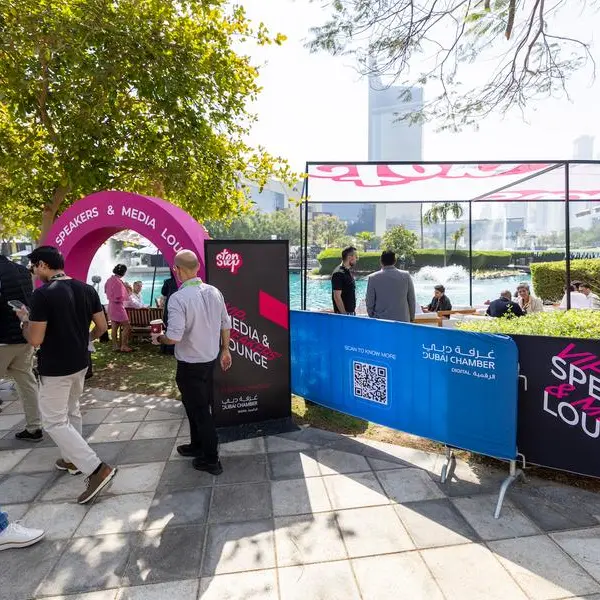PHOTO
Cairo, Egypt: JLL, one of the world’s leading real estate investment and advisory firms, today shared insights on the growth and investment opportunities in Egypt at its annual event in Cairo.
Called ‘Developing a Sustainable Future for Egypt’, the event saw Ayman Sami, Country Head – Egypt, JLL, share insights on the latest trends shaping the country’s real estate market, in line with the Egypt 2030 strategy.
Key themes discussed with Egypt’s real estate industry leaders included the evolving urban landscape, the investment opportunities owing to Egypt’s strategic location as a tourist hub, as well as ways in which to incorporate sustainability and wellness practices at the master-planning level.
Ayman Sami, JLL Country Head - Egypt said: “The government is committed to achieving the goals of Egypt Vision 2030, with a special focus on sustaining urban development, while bolstering the advancement of ‘Upper Egypt’.
“The push towards achieving the vision is seeing a number of extensive strategic plans to ease doing business, lure more foreign direct investments, reinforce the role of the private sector through partnerships (PPPs), and enhance the country’s overall investment climate.
“We expect to see more initiatives in the year ahead, and are confident of the positive impact on the short-term and long-term demand in the country’s real estate market.”
The core factors shaping investment opportunities in Cairo’s real estate market in 2020 outlined at JLL’s annual outlook event include:
Evolving urban landscape
According to the latest figures by the Central Agency for Public Mobilisation and Statistics (CAPMAS), by 2030 Egypt’s population will reach more than 145 million people. Growing population, coupled with increasing economic activity, is putting pressure on traditional city centres in Egypt. Given that real estate sector is a main driver of Egyptian economic growth, the urban resilience needs to be spread out to be able to respond and adapt to these factors, according to JLL. There is an opportunity to increase capacity for infrastructure, and to incorporate various elements in the master plan, such as healthcare and education, in order to create a compelling offering. In addition, there is also scope to enhance the country’s competitive edge by introducing diverse free zones to the Emirate.
Egypt’s strategic position
Egypt is actively reviving its role as a leading retail and tourist hub within the region. According to JLL’s latest property market report, strong visitor arrival growth associated with the latest tourism support initiatives, are expected to stimulate demand in Cairo’s property market. Additionally, there were multiple moves undertaken by the government in 2019 to boost the hospitality sector, including the ratification of residency and citizenship laws. With this, there is huge potential for growth and a lot of investment opportunities in the country.
Demand for enhanced quality of life
Egypt’s 2035 Integrated Sustainable Energy Strategy calls for the production of 20% of the nation’s electricity mix from renewables by 2022, and 42% by 2035. As a result, according to JLL, there is an increased demand for spaces that are green, and on improving the overall quality of life for citizens. Experts at the JLL event recommended developers to focus on incorporating sustainability and wellness elements at the master-planning level, while also considering retrofitting of older buildings. In addition, having sensory-based technology which constantly monitors the performance of the buildings will help fine-tune the operations and preserve the lifetime of the property.
-Ends-
Media contacts:
Medha Sandrasagara
+ 971 4 426 6999
Medha.Sandrasagara@eu.jll.com
Enya Barry
+971 52 891 3027
jll@fourcommunications.com
About JLL
JLL (NYSE: JLL) is a leading professional services firm that specializes in real estate and investment management. JLL shapes the future of real estate for a better world by using the most advanced technology to create rewarding opportunities, amazing spaces and sustainable real estate solutions for our clients, our people and our communities. JLL is a Fortune 500 company with annual revenue of $18.0 billion, operations in over 80 countries and a global workforce of more than 93,000 as of December 31, 2019. JLL is the brand name, and a registered trademark, of Jones Lang LaSalle Incorporated. For further information, visit jll.com.
About JLL MEA
Across the Middle East and Africa (MEA) JLL is a leading player in the real estate and hospitality services markets. The firm has worked in 35 countries across the region and employs over 900 internationally qualified professionals across its offices in Dubai, Abu Dhabi, Riyadh, Jeddah, Al Khobar, Cairo, Casablanca and Johannesburg. For further information, www.jll-mena.com
© Press Release 2020Disclaimer: The contents of this press release was provided from an external third party provider. This website is not responsible for, and does not control, such external content. This content is provided on an “as is” and “as available” basis and has not been edited in any way. Neither this website nor our affiliates guarantee the accuracy of or endorse the views or opinions expressed in this press release.
The press release is provided for informational purposes only. The content does not provide tax, legal or investment advice or opinion regarding the suitability, value or profitability of any particular security, portfolio or investment strategy. Neither this website nor our affiliates shall be liable for any errors or inaccuracies in the content, or for any actions taken by you in reliance thereon. You expressly agree that your use of the information within this article is at your sole risk.
To the fullest extent permitted by applicable law, this website, its parent company, its subsidiaries, its affiliates and the respective shareholders, directors, officers, employees, agents, advertisers, content providers and licensors will not be liable (jointly or severally) to you for any direct, indirect, consequential, special, incidental, punitive or exemplary damages, including without limitation, lost profits, lost savings and lost revenues, whether in negligence, tort, contract or any other theory of liability, even if the parties have been advised of the possibility or could have foreseen any such damages.



















